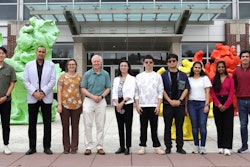The Catalytic Impact Fund has made a significant contribution to Brazil's deforestation-free agricultural efforts, delivering over 180,000 tons of verified deforestation and conversion-free (DCF) soy into the Brazilian supply chain during the second year of its Responsible Commodities Facility (RCF) Cerrado Program. This initiative, detailed in the 2023-2024 Annual Report, has been scaled up significantly, attracting an investment of $47 million, a four-fold increase from its first year.
This funding came from a mix of new and existing investors, including Santander Brasil, Rabobank, and AGRI3, as well as UK supermarkets like Tesco, Sainsbury’s and Waitrose. As a result, the number of participating farms grew from 32 to 122, enabling the program to protect 43,324 hectares of native vegetation in Brazil's Cerrado region, with 11,346 hectares conserved beyond legal requirements. In addition, the initiative protected carbon stocks equivalent to 18.2 million tons of CO2, which represents more than 15% of the UK’s annual carbon emissions.
The program uses a unique green bond financing model, offering farmers low-interest loans through dollar-denominated green bonds (CRAs) listed on the Vienna Bourse and Brazil's B3 Stock Exchange. In return, participating farmers commit to avoiding legally allowed deforestation and adhering to strict environmental and social standards.
Despite challenges posed by climate variability, exacerbated by El Niño, which caused significant reductions in soy yields, the program managed to maintain its environmental commitments while minimizing financial impacts on the farmers. The environmental monitoring was independently verified by environmental advisory firm ERM-NINT and overseen by the program's Environmental Advisory Board, which includes experts from organizations such as The Nature Conservancy, UN Environment Programme and Conservation International.
As the RCF Cerrado Programme moves into its third year, plans are underway to scale the fund to USD 200 million by 2025, further expanding its impact on sustainable agriculture and environmental protection in Brazil.












